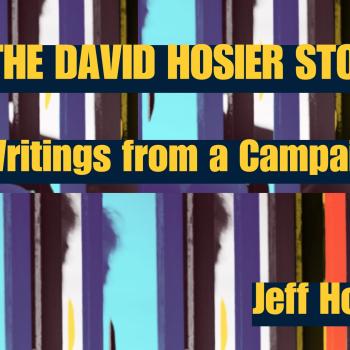
Our subject this week is the bread of life and our lectionary reading from the gospels is from the gospel of John:
Then Jesus declared, “I am the bread of life. Whoever comes to me will never go hungry, and whoever believes in me will never be thirsty.
Welcome Readers! Please subscribe to Social Jesus Here.
At this the Jews there began to grumble about him because he said, “I am the bread that came down from heaven.” They said, “Is this not Jesus, the son of Joseph, whose father and mother we know? How can he now say, ‘I came down from heaven’?”
“Stop grumbling among yourselves,” Jesus answered. “No one can come to me unless the Father who sent me draws them, and I will raise them up at the last day. It is written in the Prophets: ‘They will all be taught by God.’ Everyone who has heard the Father and learned from him comes to me. No one has seen the Father except the one who is from God; only he has seen the Father. Very truly I tell you, the one who believes has eternal life. I am the bread of life. Your ancestors ate the manna in the wilderness, yet they died. But here is the bread that comes down from heaven, which anyone may eat and not die. I am the living bread that came down from heaven. Whoever eats this bread will live forever. This bread is my flesh, which I will give for the life of the world.” (John 6:35, 41-51)
Before we jump into thoughts on the bread of life, any responsible commentary on the gospel of John must repeatedly correct the way the Jews as a whole are repeatedly villainized over and over again in the gospel of John. During the years this gospel was written, this was a debate on the inside of the Jewish community between varying Jewish voices. Christianity was separating from its Jewish roots and seeking to distinguish itself for political reasons. As benign as some commentators say that separation may have been originally, John Dominic Crossan rightly demonstrates that the rhetoric by Christians against the Jewish community would become lethal once Christianity became the official religion of the Roman Empire.
“As long as Christians were the marginalized and disenfranchised ones, such passion fiction about Jewish responsibility and Roman innocence did nobody much harm. But, once the Roman Empire became Christian, that fiction turned lethal . . . Externally, records of pagan contempt and records of pagan respect for Judaism started as soon as Greek culture and Roman power integrated in eastern Mediterranean into a somewhat united whole. Internally, divergent groups within Judaism opposed to one another in those same centuries with everything from armed opposition through rhetorical attacks to nasty name calling. Read, for example, Josephus on any other Jews he dislikes, or read the Qumran Essenes of Dead Sea Scrolls fame on those other Jews they opposed. Christianity began as a sect within Judaism and, here slowly, there swiftly, separated itself to become eventually a distinct religion. If all this had stayed on the religious level, each side could have accused and denigrated the other quite safely forever. But, by fourth century, Christianity was the official religion of the Roman Empire, and with the dawn of Christian Europe, anti-Judaism moved from theological debate to lethal possibility.” (John Dominic Crossan, Who Killed Jesus?)
Especially when reading John, we must be honest about the narratives of Jewish rejection and Roman innocence found in this gospel. John’s version of the Jesus story has led to untold harm from Christians to the Jewish community throughout the centuries.
For the sake of mitigating harm, John’s connection to anti-semitism deserves honesty. We will begin unpacking what we can glean from this bread of life discourse in John, next.
(Read Part 2)
Are you receiving all of RHM’s free resources each week?
Begin each day being inspired toward love, compassion, justice and action. Free.
Sign up at:
https://renewedheartministries.com/Contact-forms/?form=EmailSignUp
















